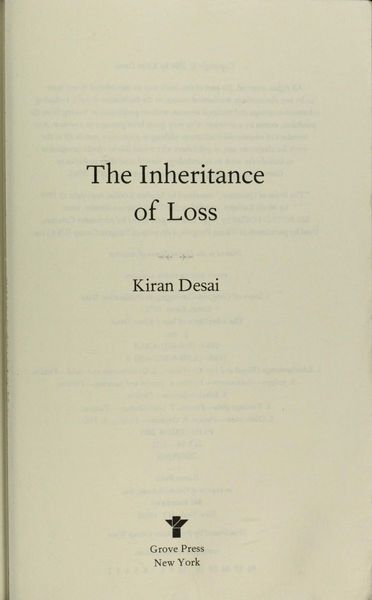
The Inheritance of Loss
In a crumbling house in the remote northeastern Himalayas, an embittered, elderly judge finds his peaceful retirement turned upside down by the arrival of his orphaned granddaughter, Sai, but their world--and Sai's romance with her handsome Nepali tutor--is threatened by a Nepalese insurgency. By the author of Hullabaloo in the Guava Orchard. Reprint. 50,000 first printing.
Reviews
Sarah Erle@serle
Arihant Verma@arihant
Rohini Anandamurugan@rohini-anandamurugan
Arianna M@letterarii
Sarah Escorsa@shrimpy
Yashar Nasir@yashar
Celina Gacias@shellkyle
Udit Desai@uydesai
Astha Prakash@asthaprakash
anjali@anjalislibrary
Emily Burns@emilymelissabee
Gigi V@barksandvino
Francine Corry@booknblues
Bhargav Acharya@bhargav
Dom@domi_b
Jane Mount@janemount
haifa@haifa
Gavin@gl
Hunter Loftis@hunterloftis
Lauren dunkley @laurendunkley
Ankush Swarnakar@ankushswar1
Avani Pandya@avanireads
Alexander Lobov@alexlobov
Anne Driscoll @settlerofcatanne